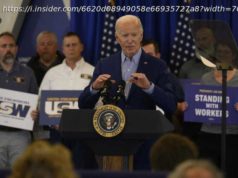Investors have expressed concern that a worsening economic crisis in the country could spill over into other markets and regions.
A looming economic crisis in Turkey — including accelerating inflation, concerns of mismanagement and a spat with the United States — spilled over into Asian markets on Monday and threatened to hit investors in Europe.
The day was punctuated by records. At one point, Turkey’s currency, the lira, fell to a historic low against the United States dollar, prompting panic among investors in other emerging-market currencies. The Indian rupee also dropped to a record low against the dollar. And in Indonesia, the rupiah flirted with a three-year low against the greenback.
Stock markets across the region, including in Hong Kong, Seoul, Shanghai and Tokyo, fell on Monday, with many exchanges dropping nearly 2 percent during the day. And the outlook for European markets did not look much better, with stocks opening in the red and the euro hovering around its lowest point against the United States dollar in a year.
Investors were driven principally by fears of contagion, the notion that an economic or financial crisis in one country — in this case, Turkey — can spread to other regions.
Turkish assets have fallen sharply in recent days, as questions have mounted over the country’s prospects. Price rises have quickened, and President Recep Tayyip Erdogan’s increasingly authoritarian rule, underlined by the appointment of a relative as an important minister and by the erosion of the central bank’s independence, has worried investors.
Piling on pressure has been a worsening diplomatic dispute with the United States. Though the tensions were initially centered around the detention of an American pastor, they have since spread into the trade arena as well.
President Trump pledged on Friday to double the rate of tariffs on steel and aluminum imports from Turkey. The comment, which was made in a Twitter post, spooked markets concerned that Mr. Trump could take a similar approach with other trading partners.
“The catalyst for market volatility has been geopolitical uncertainties and trade,” said Viraj Patel, a foreign currency strategist at the Dutch bank ING. “This is another knock for global markets and, taken together, it’s a pretty toxic environment.”
In early Monday trading in Asia, the Turkish lira had dropped to a new low against the dollar but later pared some of those losses after Turkey’s central bank took steps to bolster the currency and said in a statement that it would “provide all the liquidity the banks need” to stem huge fluctuations.
China’s currency, the renminbi, which has been a casualty of Mr. Trump’s trade policies for weeks, also weakened further against the dollar. The government in Beijing, which keeps a firm grip on the value of its currency, weakened the renminbi by 0.34 percent against the dollar, setting the benchmark rate for trading in Shanghai at its weakest level in 15 months.
China’s main stock index at one point lost nearly 2 percent, but closed down 0.3 percent. The reaction was stronger in other Asian markets on Monday. In Tokyo, the main index fell 2 percent. Stocks in Seoul fell 1.5 percent. A broad index of Europe’s biggest companies was down 0.6 percent in early morning trading.
Concerns about trade wars and geopolitical uncertainties, including the turmoil in Turkey and other emerging markets, may not yet be significant enough to weigh on all global markets, according to economists and market analysts.
“But taken together they create a toxic environment,” Mr. Patel at ING said. “At the moment, it’s less financial contagion and more general de-risking. This in itself could be an ominous signal.”
A strengthening dollar is the biggest concern for officials in China and in other emerging markets. The upheaval in Turkey has fortified the dollar even further.
Despite the panic in markets, one economist at Deloitte said he believed that uncertainty about Turkey did not signal a global contagion, yet. Turkey’s economy is only the 17th-largest in the world, and it is not as integrated into the global financial system as countries like China and the United States.
“I’m a little concerned, but I wouldn’t be pressing the panic button,” the economist, Xu Sitao, said.






